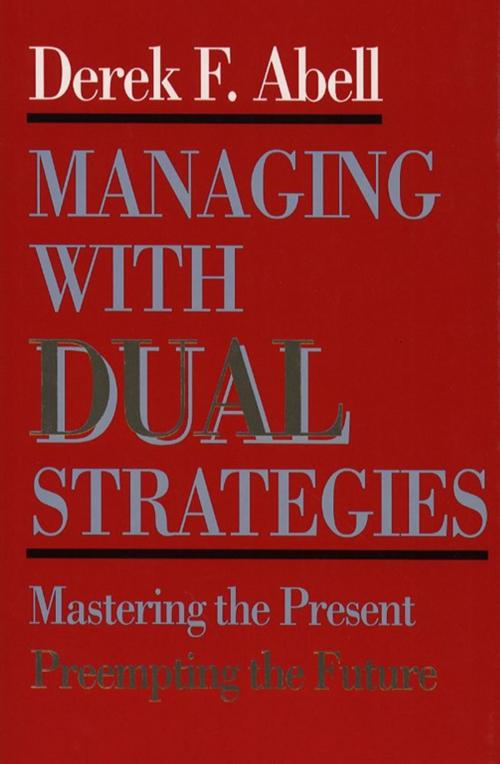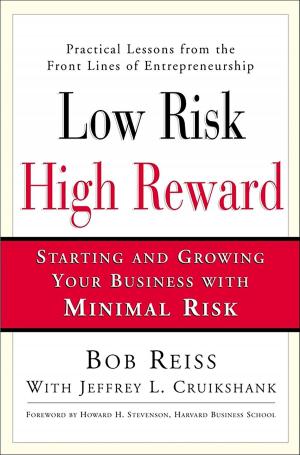Managing with Dual Strategies
Business & Finance, Economics, Planning & Forecasting, Marketing & Sales| Author: | Derek F. Abell | ISBN: | 9781451602241 |
| Publisher: | Free Press | Publication: | June 15, 2010 |
| Imprint: | Free Press | Language: | English |
| Author: | Derek F. Abell |
| ISBN: | 9781451602241 |
| Publisher: | Free Press |
| Publication: | June 15, 2010 |
| Imprint: | Free Press |
| Language: | English |
Rarely, if ever, do companies clearly distinguish between or balance the management of today's business and planning for the future. Derek Abell, internationally renowned for his pioneering work on strategic market planning, once again breaks sharply with conventional wisdom to demonstrate how a company can develop analytic marketing modes for not one but two distinct planning horizons. Managing with dual strategies, Abell argues, calls for new approaches not only to planning, but to organizational structure and management control. He makes specific recommendations on how current operating practices need to be adapted, and shows how leading firms are recognizing the dual nature of management as a new way of organizational life.
Planning for the present, Abell shows, requires a vision of how the firm must operate now given its unique competencies and resources. By involving each level within the management team from the CEO to financial planners, to line managers, Abell details how firms can pinpoint market opportunities through careful segmentation and identification of key success factors to "connect" with customers. At the same time, he distinguishes the importance of horizontal relationships for defining and focusing on internal strategies, and vertical relationships for being attuned to changing market realities.
Success today, he warns, does not ensure success tomorrow. Abell describes how world-class leaders such as Nestlé, Caterpillar, and Heineken monitor both internal and external forces for market change, successfully mastering the present, and preempting the future. Preparing for the future requires understanding the full range of activities industry-wide, and anticipating changes in technology, buyer/seller behavior, and product life cycles. Abell explains how companies can develop and implement these co-existing visions and address the real forms of change that vitally affect their future -- today and tomorrow.
Rarely, if ever, do companies clearly distinguish between or balance the management of today's business and planning for the future. Derek Abell, internationally renowned for his pioneering work on strategic market planning, once again breaks sharply with conventional wisdom to demonstrate how a company can develop analytic marketing modes for not one but two distinct planning horizons. Managing with dual strategies, Abell argues, calls for new approaches not only to planning, but to organizational structure and management control. He makes specific recommendations on how current operating practices need to be adapted, and shows how leading firms are recognizing the dual nature of management as a new way of organizational life.
Planning for the present, Abell shows, requires a vision of how the firm must operate now given its unique competencies and resources. By involving each level within the management team from the CEO to financial planners, to line managers, Abell details how firms can pinpoint market opportunities through careful segmentation and identification of key success factors to "connect" with customers. At the same time, he distinguishes the importance of horizontal relationships for defining and focusing on internal strategies, and vertical relationships for being attuned to changing market realities.
Success today, he warns, does not ensure success tomorrow. Abell describes how world-class leaders such as Nestlé, Caterpillar, and Heineken monitor both internal and external forces for market change, successfully mastering the present, and preempting the future. Preparing for the future requires understanding the full range of activities industry-wide, and anticipating changes in technology, buyer/seller behavior, and product life cycles. Abell explains how companies can develop and implement these co-existing visions and address the real forms of change that vitally affect their future -- today and tomorrow.















